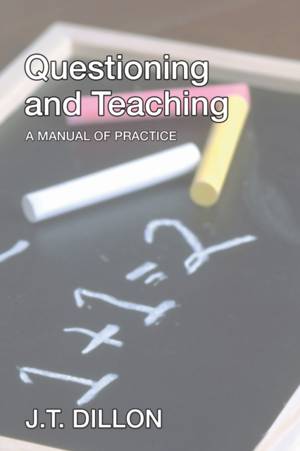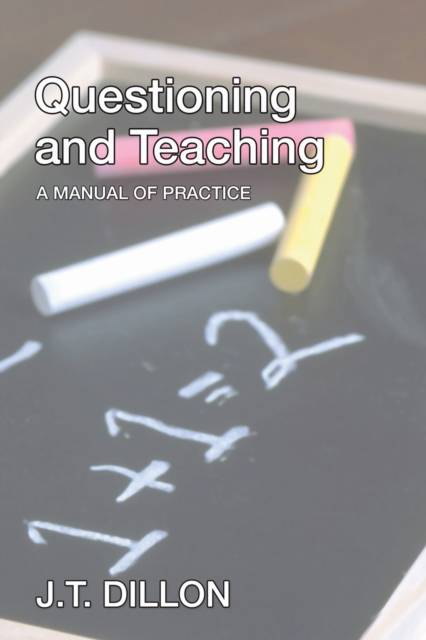
- Afhalen na 1 uur in een winkel met voorraad
- Gratis thuislevering in België vanaf € 30
- Ruim aanbod met 7 miljoen producten
- Afhalen na 1 uur in een winkel met voorraad
- Gratis thuislevering in België vanaf € 30
- Ruim aanbod met 7 miljoen producten
Zoeken
Omschrijving
Questions and questioning play a major role in both formal and informal educative processes. They are the means by which a child expresses the desire to understand the world outside, and they subsequently become the means by which a teacher assesses whether or not a child has satisfactorily assimilated something. The teacher can also use questions to direct and control the course of students' studies. The ability and desire to question might be considered in itself one of the aims of education. This author has made an extensive study of the place of questioning in education and this book is the fullest record to date of that study. Its scope is comprehensive. It considers questions from the point of view of the one questioning and the one being questioned, and considers pupil and teacher in both of these roles. This work is grounded in theory, research, and practice and is informed by research done in other fields such as psychotherapy, criminal interrogation, and computer science.
Specificaties
Betrokkenen
- Auteur(s):
- Uitgeverij:
Inhoud
- Aantal bladzijden:
- 208
- Taal:
- Engels
Eigenschappen
- Productcode (EAN):
- 9781592447169
- Verschijningsdatum:
- 4/06/2004
- Uitvoering:
- Paperback
- Formaat:
- Trade paperback (VS)
- Afmetingen:
- 135 mm x 230 mm
- Gewicht:
- 312 g

Alleen bij Standaard Boekhandel
+ 74 punten op je klantenkaart van Standaard Boekhandel
Beoordelingen
We publiceren alleen reviews die voldoen aan de voorwaarden voor reviews. Bekijk onze voorwaarden voor reviews.











